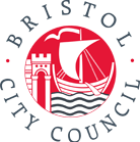Bristol Bones and Joints highlights for 2016-17
Directors Dr Emma Clark, Professor Ashley Blom and Professor Sarah Hewlett give an update on the 2016-17 activity of the Bristol Bones and Joints HIT which focuses on osteoarthritis, osteoporosis and inflammatory rheumatological disorders.
- 18th May 2017
Directors Dr Emma Clark, Professor Ashley Blom and Professor Sarah Hewlett give an update on the 2016-17 activity of the Bristol Bones and Joints Health Integration Team (HIT).
The Bones and Joints HIT covers three disease areas: osteoarthritis, osteoporosis and inflammatory rheumatological disorders, underpinned by three themes of patient self-management, patient and public involvement and information technology.
In osteoarthritis the infected arthroplasty service at North Bristol Trust continues to be a world-class referral centre with a multidisciplinary approach, thanks to the efforts of our HIT. The INFORM programme, a randomised control trial of one versus two-stage revision of infected hip replacements, which we are leading continues apace. The study brings together 14 NHS trusts and five universities and is funded by a £2 million NIHR grant.
In osteoporosis, we have agreed best-practice standards across the Bristol hospitals for DEXA bone density scans. We now routinely collect patient-based quality indicators for the pan-Bristol bone density DXA scanning service. We have been awarded a large grant to develop a clinical tool to identify which older women with back pain should be given spinal X-rays to diagnose vertebral fractures.
In inflammatory rheumatological disorders, the British Society of Rheumatology award winning rheumatoid arthritis patient pathway in University Hospitals Bristol has been running for several years. North Bristol Trust has also developed a pathway.
We are reviewing the pathways for diagnosing patients with fibromyalgia to develop a more streamlined and appropriate route to support. We are also developing unified best practice for patients with vasculitis and the connective tissue diseases, across both Bristol trusts and the Royal National Hospital for Rheumatic Diseases in Bath.
In self-management, we are aware access to psychological and self-management programmes is inequitable across trusts and conditions. Bristol Health Partners has given us £10,000 to try and improve this. Our research on self-management includes:
- improving support for the self-management of fatigue
- improving shared decision-making with professionals
- exploring the impact of some of the rarer conditions
- supporting patient activation into self-management
‘ESCAPE-pain’ is an exercise and self-management intervention to improve pain and function for people with hip and knee osteoarthritis. It’s now being trialled in local leisure centres delivered by exercise professionals, rather than hospital physiotherapists.
Our fourth patient consultation day is planned for the summer of 2017. It will concentrate on patient priorities for service improvement, collaboration in shared decision-making and self-management, as well as research priorities.
Our single point of entry website for patients, clinicians and researchers across Bristol, offering local information on musculoskeletal disease, care pathways and research is now in beta version. With help from a local GP, Dr Karen Wallace, we are refining it based on feedback from patients and professionals.






